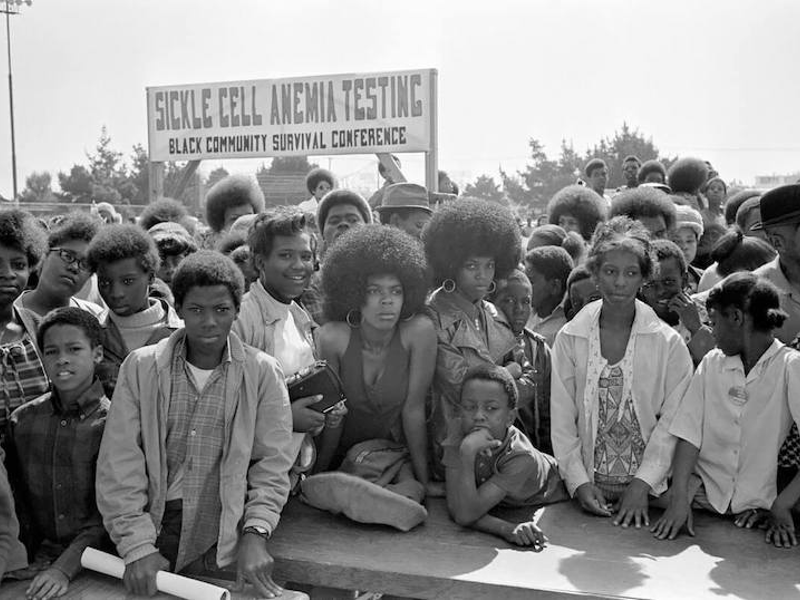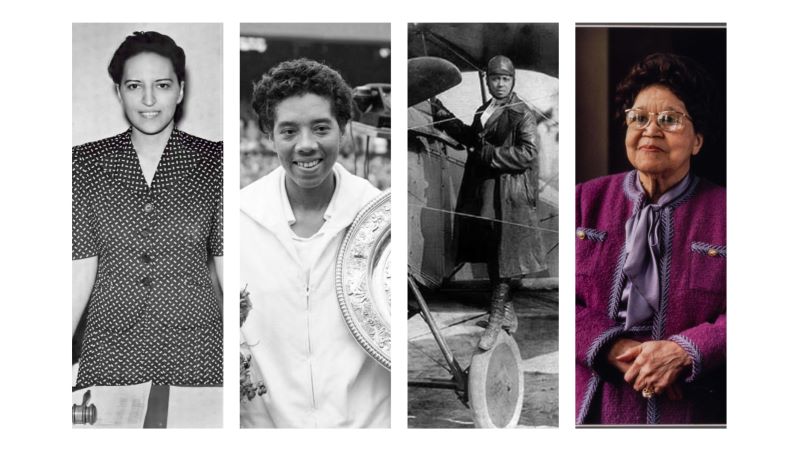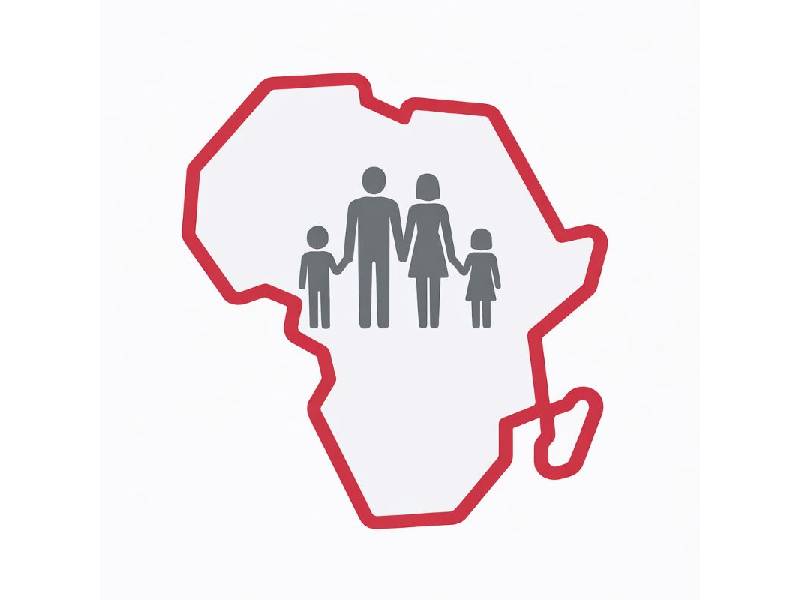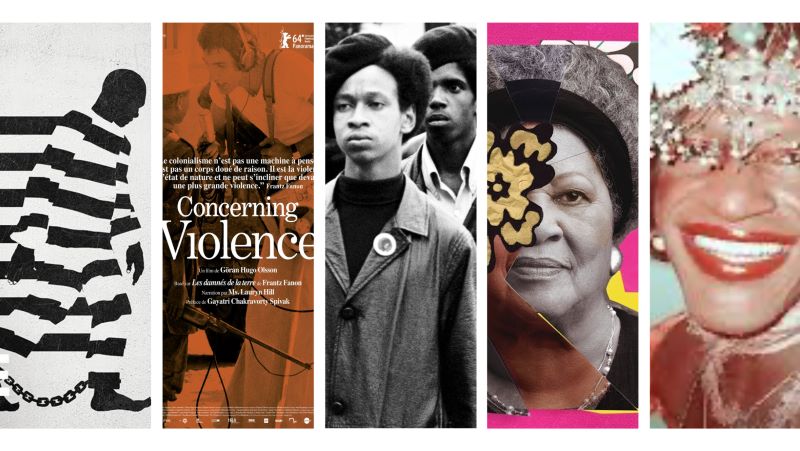March 31, 1972, Oakland, California, USA: Testing for Sickle Cell Anemia at Community Survival Conference. Source: allaboutphoto.com, from Comrade Sisters: Women of the Black Panther Party, Stephen Shames
The co-authors of the book Comrade Sisters: Women of the Black Panther Partywere celebrated by the Philadelphia Women’s Commission and the Philadelphia Chapter of the National Organization of Women toward the close of Women’s History month and against the backdrop of those attempting to delete the Black history.
The book, co-authored by photographer Stephen Shames and Erika Huggins, presents 110 black and white candid photos of the women of the BPP who were committed to supporting the party’s social, economic and political agenda.
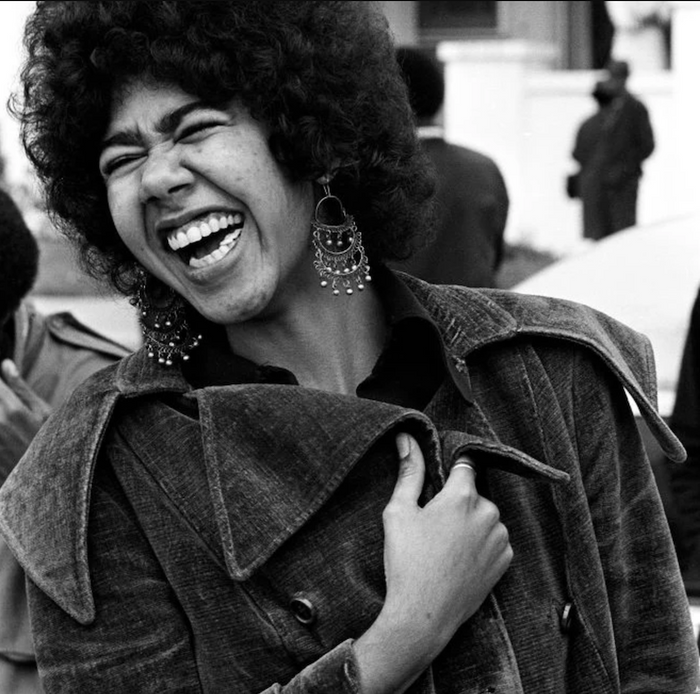
Ericka Huggins, Source: Official Website
Huggins was an early BPP member and leader. She was also a political prisoner and continues as a human rights activist today. She says, “So many women who joined the party 40 to 50 years ago have since transitioned from this life. Many remembrances, written by their children or by their Comrade Sisters, are gathered here to celebrate their commitment to their party and their people.”
The Black Panther Party (BPP) was founded in late 1966 by Bobby Seale and Huey P. Newton, students at Merritt College in Oakland, California. Beginning with community police patrols and a Free Breakfast for School Children program, the BPP expanded beyond Oakland to many major cities across the nation, including Philadelphia. While promoting self defense, the BPP also sponsored innovative community-based services, including the children’s complimentary breakfast program, community health clinics and educational and housing programs. The BBP was active until 1982.
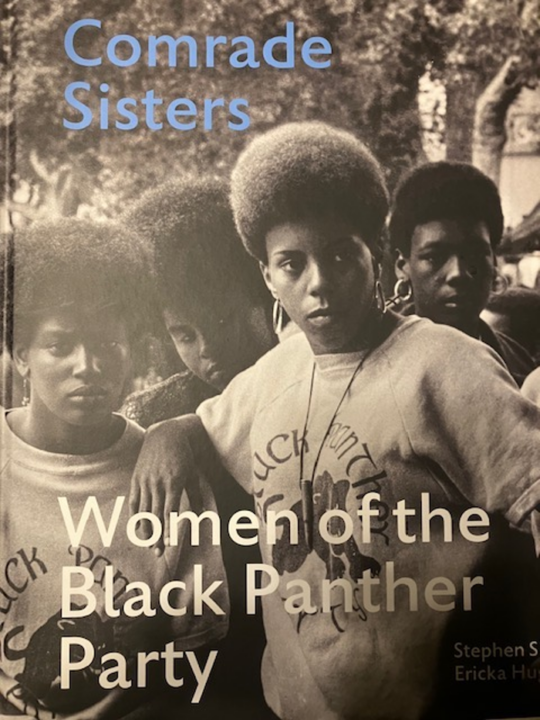
Book cover image.
Through its photos, first-person narratives and art, the book focuses on the wide-reaching contribution, commitment and sacrifice of the women members of the BPP. Bobby Seale gave Co-author and photographer Shames access to BPP activities when he was a student at Berkeley. His behind-the-scenes and close-to-the-action photos provide an insider’s look at the determined action of the women of the BPP.
As outlined in the book, the BPP was targeted by the FBI and the police. In 1979 John Huggins, the leader of the BPP Los Angeles chapter and Erika Huggins’ husband, was killed just three weeks after their daughter was born. In 1969, J. Edgar Hoover, the director of the FBI, described the BPP as “The greatest threat to the internal security of the country.” Under Hoover’s direction, the FBI sabotaged the BPP with Cointelpro, an illegal and covert program that infiltrated, surveilled, harassed and criminalized the party.
It’s estimated that six out of ten Panther Party members were women. And, with great respect, Comrade Sisters presents the stories and images of the named and unnamed women of the BPP. Huggins says, “We have made icons of a select few of these women, but they all deserve their flowers. After all, the seeds they have planted continue to bloom in our communities and also in our freedom dreams.”
Huggins adds, “This book is a very late, very humble shout of gratitude to those who have been unknown and unsung for so many years.”

Karen Warrington has had a decades long career as a broadcast journalist, communications professional, performing artist, and documentary filmmaker. She has traveled extensively throughout Africa, the Caribbean, Europe, and Asia. She is committed to being a voice for the African Diaspora.

